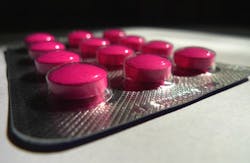Many generic drugs fail to serve their purpose, doctors warn
Doctors and researchers have criticized the U.S. Food and Drug Administration (FDA) for failing to control the effectiveness of the vast majority of pharmaceutical products sold in the United States, accusing the watchdog of lax regulation.
According to Preston Mason, a researcher at Brigham and Women's Hospital in Boston, many drugs manufactured by Indian companies are not as effective as they are supposed to be, mostly because some companies produce sub-standard drugs in an attempt to cut costs, Bloomberg BusinessWeek reported.
Speaking at a briefing to White House representatives, FDA officials and congressional staffers, Mason claimed that the current situation in the generic drugs market was similar to the Wild West. Results from research he was involved with showed that some of the drugs did not work at all, while others could actually harm one's health.
RELATED: AstraZeneca, Merck gain share on Glaxo's asthma treatment drug
For his study, Mason examined 36 versions of Pfizer's cholesterol treatment product Lipitor from 15 countries. He found that many samples of the drugs were contaminated, with those manufactured overseas more likely to contain impurities than those produced domestically. Such contamination may seriously interfere with the effectiveness of the product, he explained.
Mason's view was supported by cardiologist Harry Lever, who also spoke at the briefing. He pointed out that the U.S. cardiology community was not widely familiar with the problem but, from his personal experience, patients who have not responded well to treatment with foreign generic versions tended to improve when U.S. generic drugs or branded products were prescribed.
